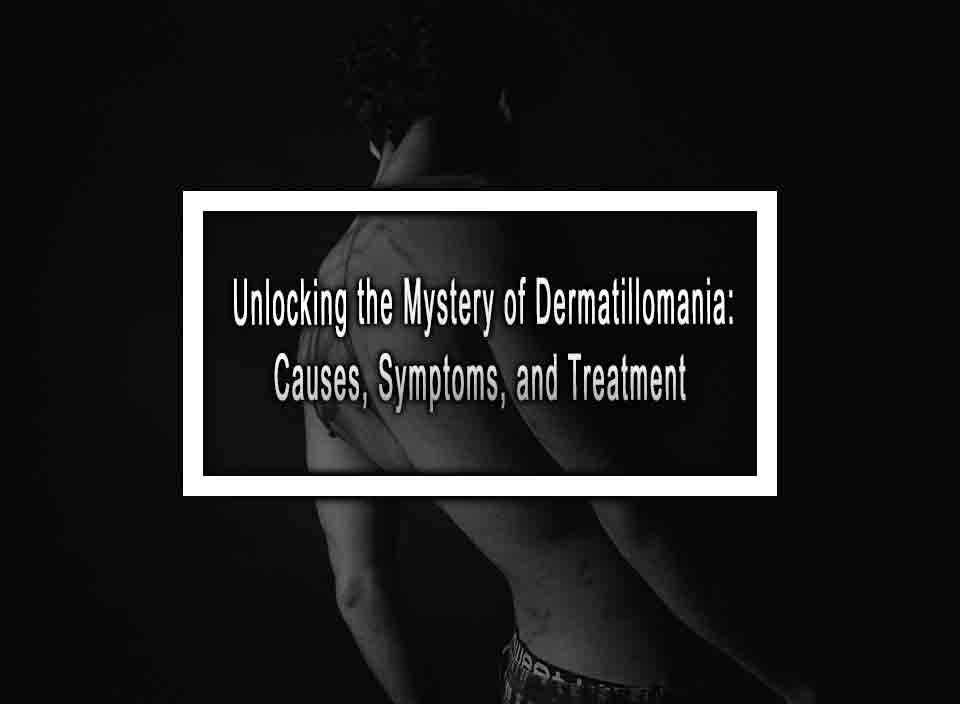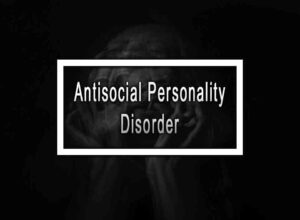Table of Contents
ToggleUnderstanding Dermatillomania: Causes, Symptoms and Treatment
Dermatillomania, also known as a skin-picking disorder, is a condition that affects millions of people worldwide. It is characterized by the compulsive urge to pick at one’s skin, resulting in skin damage and possible infection. But what are the causes of dermatillomania? What are the symptoms? And most importantly, what are the treatments? In this listicle, we will be unraveling the mystery behind dermatillomania by providing you with all the essential information you need.
Causes of Dermatillomania
Dermatillomania is caused by a combination of factors, including genetics, environmental triggers, and psychological issues.
Genetics
Studies show that dermatillomania tends to run in families. If a member of your immediate family has the condition, you are more likely to develop it too.
Environmental Triggers
Stress, boredom, anxiety, and other emotional triggers can lead to dermatillomania. It can also be triggered by physical sensations such as dry skin or a bump.
Psychological Issues
Dermatillomania is often associated with other conditions such as obsessive-compulsive disorder (OCD), anxiety, depression, and body dysmorphic disorder (BDD).
Symptoms of Dermatillomania
The most obvious symptom of dermatillomania is the compulsive urge to pick at one’s skin. This leads to the fingers and nails becoming damaged from excessive picking, often resulting in skin cuts, scars, or lesions. Other symptoms of dermatillomania may include:
– Feeling anxious or guilty while picking at skin
– Spending hours picking at skin
– Avoiding social situations due to skin damage
– Hiding areas of skin damage with clothing or makeup
– Finding it difficult to stop picking at skin
Treatment for Dermatillomania
Although there is no cure for dermatillomania, there are several treatments available that can help individuals manage their symptoms.
Cognitive-behavioral therapy (CBT)
CBT helps individuals identify their triggers for picking and developing coping strategies to manage their urges.
Medications
Antidepressants and anti-anxiety medications can help reduce the urges to pick and improve mood.
Mindfulness and relaxation techniques
Learning relaxation techniques such as deep breathing, meditation, or yoga can help manage stress and anxiety.
Managing Dermatillomania: Understanding its Causes, Symptoms and Treatment
Dermatillomania is a challenging condition, but with the right treatment, individuals can learn to manage their symptoms and lead healthy, happy lives. Remember, seeking help is the first step toward healing. If you or someone you know is struggling with dermatillomania, consult a mental health professional or a dermatologist for the best treatment options.
Dermatillomania FAQ
Here are the most common questions about Dermatillomania.
How common is dermatillomania?
Dermatillomania is thought to be relatively common, with research indicating that up to 5.4% of the population may experience some form of skin picking disorder.
How is dermatillomania diagnosed?
Dermatillomania is typically diagnosed by a mental health professional, such as a psychiatrist or psychologist. Diagnosis typically involves a thorough evaluation of the individual’s symptoms and medical history, as well as a physical examination.
Can dermatillomania be cured?
There is no known cure for dermatillomania, but with proper treatment, many individuals are able to manage their symptoms and reduce the frequency and severity of their skin-picking behaviors.
What are some tips for managing dermatillomania?
Tips for managing dermatillomania include identifying triggers for skin-picking behaviors, keeping hands busy with fidget toys or stress balls, covering or bandaging problem areas, and seeking support from family, friends, or a mental health professional. It is also important to maintain good skin hygiene and seek medical treatment for any infections or injuries related to skin picking.
Can dermatillomania lead to other health problems?
Yes, dermatillomania can lead to other health problems, such as skin infections, scarring, and in severe cases, permanent disfigurement. Additionally, the behavior can cause emotional distress and impact social and occupational functioning. It is important to seek treatment for dermatillomania to prevent these negative consequences.












